Resources
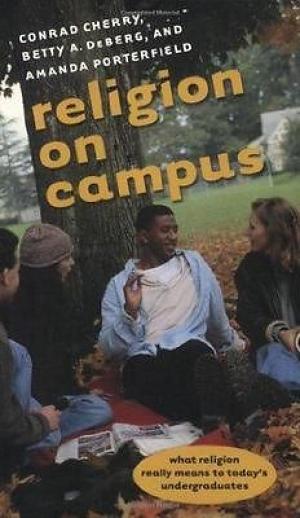
The first intensive, close-up investigation of the practice and teaching of religion at American colleges and universities, Religion on Campus is an indispensable resource for all who want to understand what religion really means to today's undergraduates. To explore firsthand how college students understand, practice, and learn about religion, the authors visited four very different U.S. campuses: a Roman Catholic university in the East, a state university in the West, a historically black university in the South, and a Lutheran liberal arts college in the North. They interviewed students, faculty members, and administrators; attended classes; participated in worship services; observed prayer and Bible study groups; and surveyed the general ethos of each campus. The resulting study makes fascinating and important reading for anyone--including students, parents, teachers, administrators, clergy, and scholars--concerned with the future of young Americans. Challenging theories of the secularization of higher education and the decline of religion on campus, this book reveals that both the practice and the study of religion are thriving, nourished by a campus culture of diversity, tolerance, and choice.(From the Publisher)
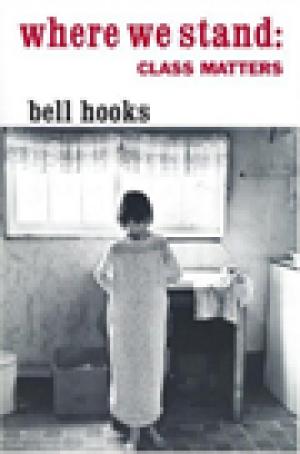
Drawing on both her roots in Kentucky and her adventures with Manhattan Coop boards, Where We Stand is a successful black woman's reflection - personal, straight forward, and rigorously honest - on how our dilemmas of class and race are intertwined, and how we can find ways to think beyond them. (From the Publisher)

From the Publisher "Those who ponder these pages will be renewed to love God with all their minds, to pursue truth, and to live faithfully."--David S. Dockery, Union University What purpose do purely intellectual pursuits have in the lives of Christians? Why should Christians study subjects that have little bearing on their future careers and ministry? In a style reminiscent of the work of Arthur Holmes and Harry Blamires, veteran professor of philosophy Clifford Williams addresses these issues and more in this succinct and accessible examination of the life of the mind. Christians cultivating the life of the mind actively pursue situations and discussions that require experimentation, reflection, and perseverance. They are interested in the acquisition of knowledge that is both unrelated and directly related to their faith. Williams answers common Christian objections to such activities, describes the virtues of the person who engages in the life of the mind, and asserts that the life of the mind is justifiably a Christian calling. The Life of the Mind, the newest addition to the RenewedMinds imprint, is directed toward students contemplating the importance of college and intellectual activity in general, but it will be enjoyed by all committed to developing a Christian mind.
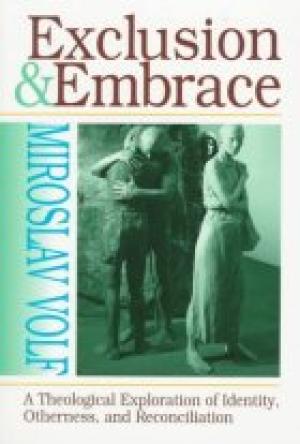
Life at the end of the twentieth century presents us with a disturbing reality. Otherness, the simple fact of being different in some way, has come to be defined as in and of itself evil. Miroslav Volf contends that if the healing word of the gospel is to be heard today, Christian theology must find ways of speaking that address the hatred of the other. Reaching back to the New Testament metaphor of salvation as reconciliation, Volf proposes the idea of embrace as a theological response to the problem of exclusion. Increasingly we see that exclusion has become the primary sin, skewing our perceptions of reality and causing us to react out of fear and anger to all those who are not within our (ever-narrowing) circle. In light of this, Christians must learn that salvation comes, not only as we are reconciled to God, and not only as we "learn to live with one another," but as we take the dangerous and costly step of opening ourselves to the other, of enfolding him or her in the same embrace with which we have been enfolded by God. (From the Publisher)
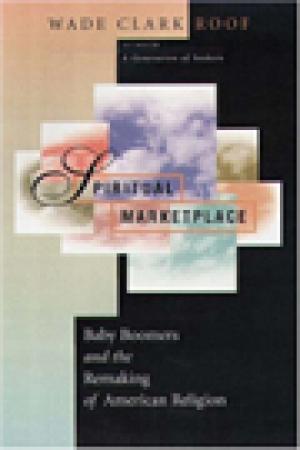
In large chain bookstores the "religion" section is gone and in its place is an expanding number of topics including angels, Sufism, journey, recovery, meditation, magic, inspiration, Judaica, astrology, gurus, Bible, prophesy, evangelicalism, Mary, Buddhism, Catholicism, and esoterica. As Wade Clark Roof notes, such changes over the last two decades reflect a shift away from religion as traditionally understood to more diverse and creative approaches. But what does this splintering of the religious perspective say about Americans? Have we become more interested in spiritual concerns or have we become lost among trends? Do we value personal spirituality over traditional religion and no longer see ourselves united in a larger community of faith? Roof first credited this religious diversity to the baby boomers in his bestselling A Generation of Seekers (1993). He returns to interview many of these people, now in mid-life, to reveal a generation with a unique set of spiritual values--a generation that has altered our historic interpretations of religious beliefs, practices, and symbols, and perhaps even our understanding of the sacred itself. The quest culture created by the baby boomers has generated a "marketplace" of new spiritual beliefs and practices and of revisited traditions. As Roof shows, some Americans are exploring faiths and spiritual disciplines for the first time; others are rediscovering their lost traditions; others are drawn to small groups and alternative communities; and still others create their own mix of values and metaphysical beliefs. Spiritual Marketplace charts the emergence of five subcultures: dogmatists, born-again Christians, mainstream believers, metaphysical believers and seekers, and secularists. Drawing on surveys and in-depth interviews for over a decade, Roof reports on the religious and spiritual styles, family patterns, and moral vision and values for each of these subcultures. The result is an innovative, engaging approach to understanding how religious life is being reshaped as we move into the next century. (From the Publisher)
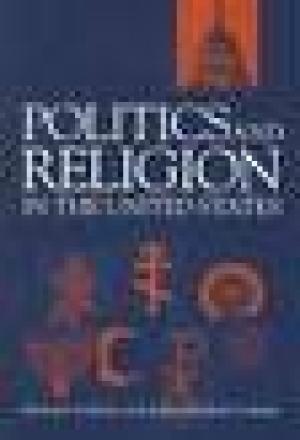
This important book examines the ways in which politics and religion have interacted with each other in the United States from the days of the early colonial period through the 1990s. Unique in the way it sets the contemporary discussion of politics and religion in the larger context of the entire scope of U.S. history, this book traces significant themes over time showing students how the events of the 1990s have their roots in a long process of development. In addition, this volume offers students and teachers an excellent means of keeping up with contemporary developments virtually as rapidly as they occur. The authors have developed their own World Wide Web site to be used in conjunction with the book. This site offers a large variety of relevant links and includes an update area in which important new developments will be posted. Moreover, each chapter of the book has references to several relevant Web sites. (From the Publisher)

The Bible tells of Naaman the Syrian, who entered the Jordan River to be cleansed. Comparing the affliction of racism to Naaman's illness, Enter the River by Jody Miller Shearer invites readers into their own healing. He explores definitions of prejudice and racism, the different effects of racism on white persons and people of color, affirmative action, and many other issues. The accessible presentation provides a strong foundation for study and action. (From the Publisher)
Of all America's religious traditions, the author writes, evangelical Protestantism, at least in the twentieth-century conservative forms, has long ranked "dead last in intellectual stature." Now evangelical thinkers are trying to revitalize their tradition. Can they turn an intellectual backwater into an intellectual beacon?
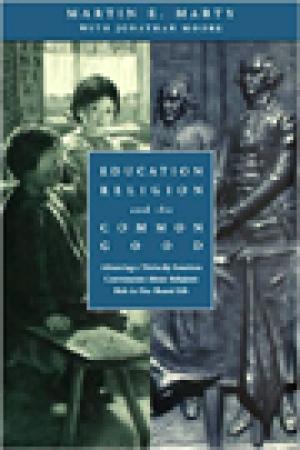
The preeminent authority on religion in America advances an important public dialogue on the proper role of religion in educating and forming the next generation within a pluralist society. (From the Publisher)